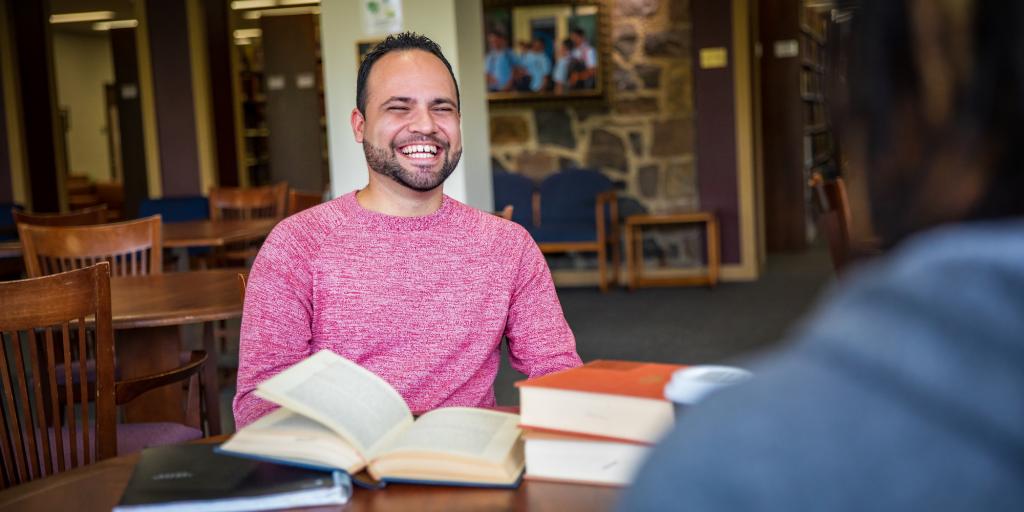

Flexible. Affordable. Transformative.
Palmer's flexible, affordable, 100% online Doctor of Ministry (DMin) program is designed for professional church and parachurch leaders interested in holistic renewal of communities. Students can choose from concentrations in Religion and Public Policy, Personal and Spiritual Transformation, or Prophetic Preaching and Teaching.
Program Details
- Location: 100% Online
- Delivery: Our flexible LifeFlex format allows you to work at your own pace within each term, with no required class times.
- Length: 36 credits; average completion time of 3 years
- Start Terms: Every August. Apply online today! (View application deadlines)
- Tracks: General Curriculum, Religion and Public Policy, Personal and Spiritual Transformation, Prophetic Preaching and Teaching
Cost, Financial Aid & Scholarships
Fall 2024-Summer 2025 academic year: Browse Tuition & Fees.
Fall 2025-Summer 2026 academic year:
- Exciting news! Starting Fall 2025, this program will transition to a new LifeFlex tuition rate:
- $300/credit tuition + $30/credit fees = $330 total per credit
- $330/credit in tuition & fees x 36 credits = $11,880 total for the full Doctor of Ministry!
- Financial Aid & Scholarships: Discover our scholarships, military benefits, and federal financial aid options that may be available to you.
- Apply for scholarships using this Scholarship Application!
Designed for church and parachurch leaders who:
- Desire to deepen their knowledge, skills and personal relationship with God
- Long for renewal in their ministry setting
- Treasure the support and mutual learning of fellow leaders
- Recognize the relationship between the spiritual life of the leader and the renewal of the community
- Know the benefits of studying with a faculty that is committed to training church leaders for adaptive and transformative ministry
- Value academic rigor that is directly linked to the practice of ministry
- Need to spend minimal time away from work and family
Mission
Palmer Theological Seminary’s Doctor of Ministry degree educates Christian leaders to nourish the connection between healthy spiritual life and sustained vitality in ministry. It guides the development of skills for discerning, implementing and assessing contextually relevant ministry within a global framework. On these foundations, the Palmer Doctor of Ministry prepares participants for holistic renewal of communities.
Stressing the church’s and parachurch’s role in a world marked by change, Palmer’s Doctor of Ministry degree trains students to examine the connections between local and global realities. With these local-global links in mind, participants assess communities, and conceptualize ministries that promote neighborhood and community health. As they learn to adapt ministries to new realities, students grapple with their understanding of the nature and mission of the church.









